In today’s digitally driven world, Artificial Intelligence (AI) and Big Data play pivotal roles in shaping democratic governance and communication. However, they also pose challenges to democratic values, potentially creating an environment that undermines citizen engagement. Addressing these ethical and socio-technical considerations to ensure responsible AI development and deployment is crucial.
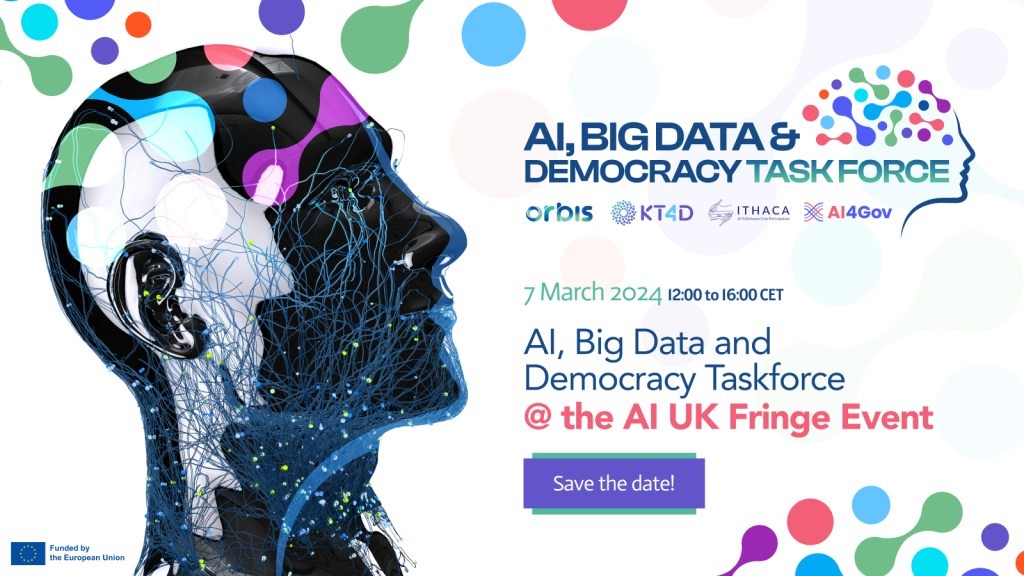
The „AI, Big Data, and Democracy Task Force” is a collaborative initiative comprising projects such as AI4Gov, ITHACA, KT4D, and ORBIS. Operating within an interdisciplinary framework, the Task Force draws on diverse theoretical perspectives to navigate the complex interplay of AI, big data, and democracy. Informed by democratic theory, it emphasizes principles of participation, representation, and deliberation to understand the impact of emerging technologies on governance. Ethical considerations guide its work, focusing on fairness, transparency, accountability, and privacy.
The recent deep-dive workshop organized by the Task Force delved into these issues. Split into two parts, the workshop featured keynote speeches by AI Democracy & Ethics experts followed by panel discussions. Additionally, it showcased live demonstrations of cutting-edge AI tools tailored for deliberative settings. Attendees had the opportunity for hands-on experience with these tools, providing valuable feedback through platforms like Slido, Mentimeter, and Miro.
One notable segment of the workshop focused on „Aiming for participatory democracy and the inclusion of vulnerable groups: challenges, aspirations, and lessons,” presented by Michael Bedek and Maria Zangl from the University of Graz as part of the ITHACA project.
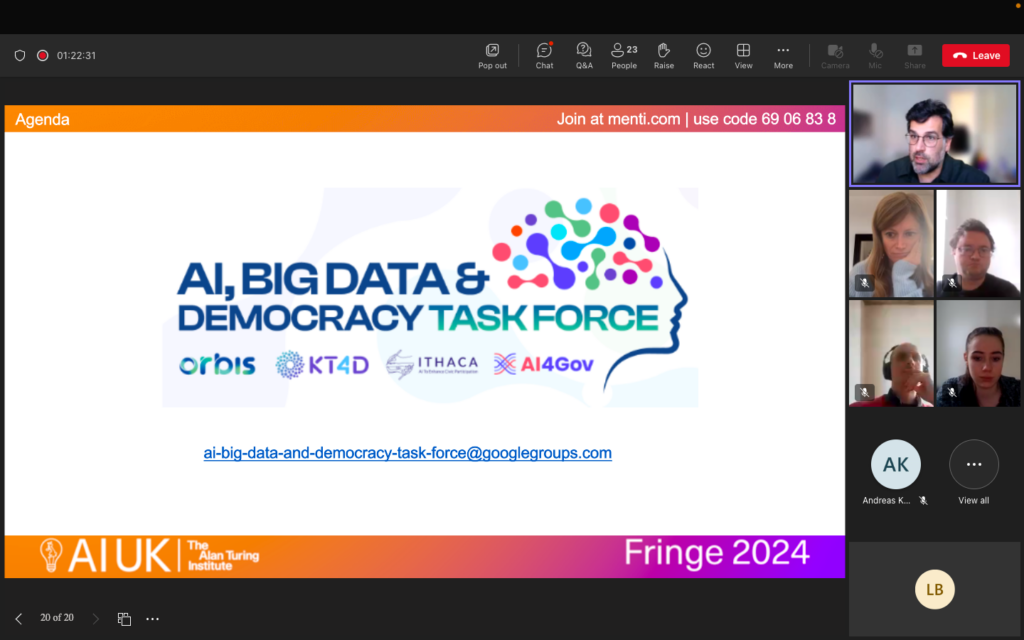
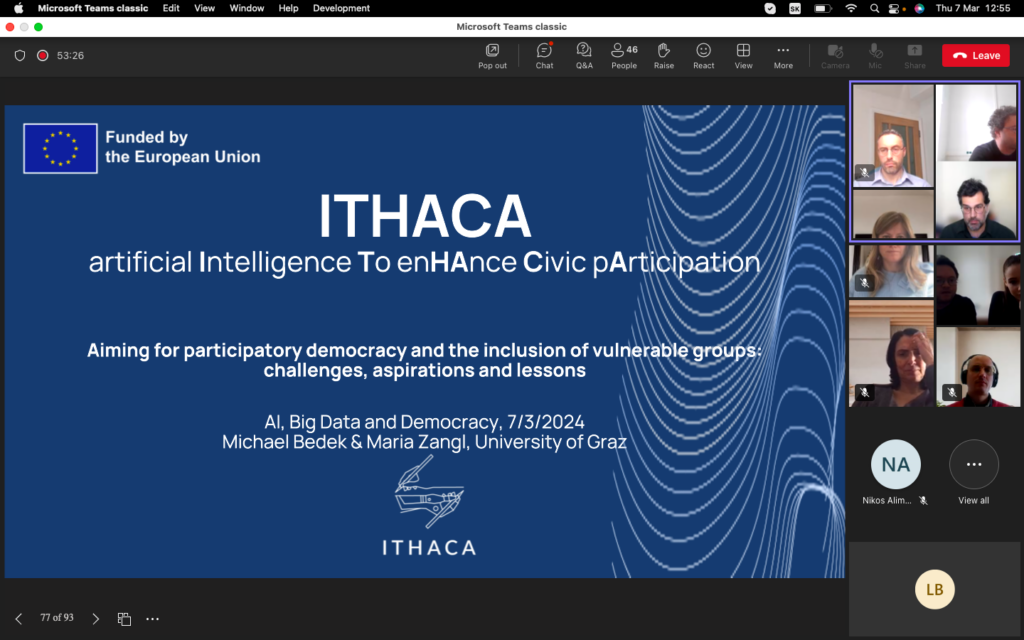
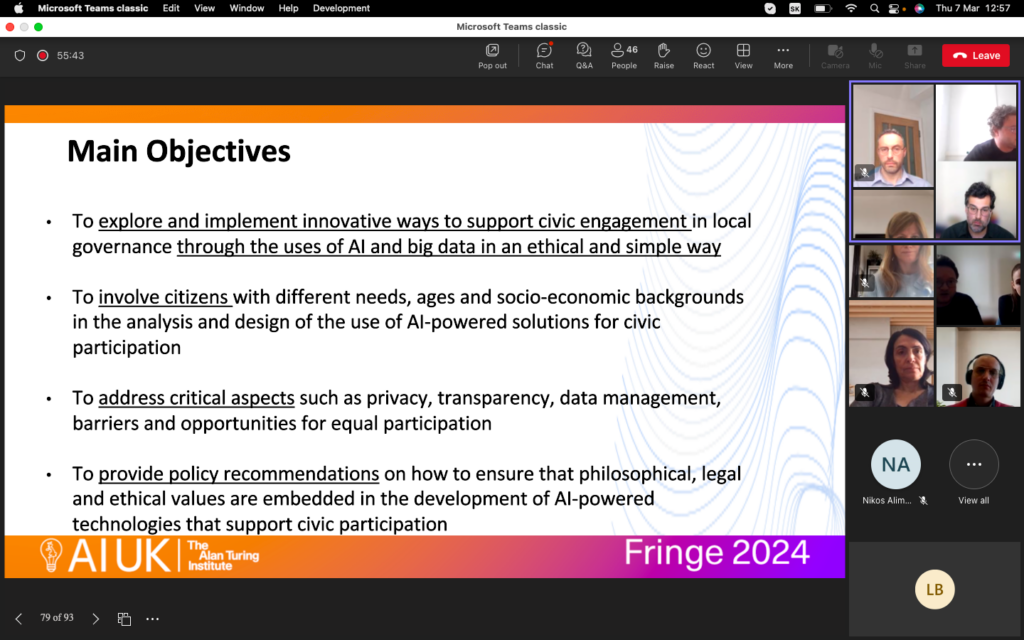
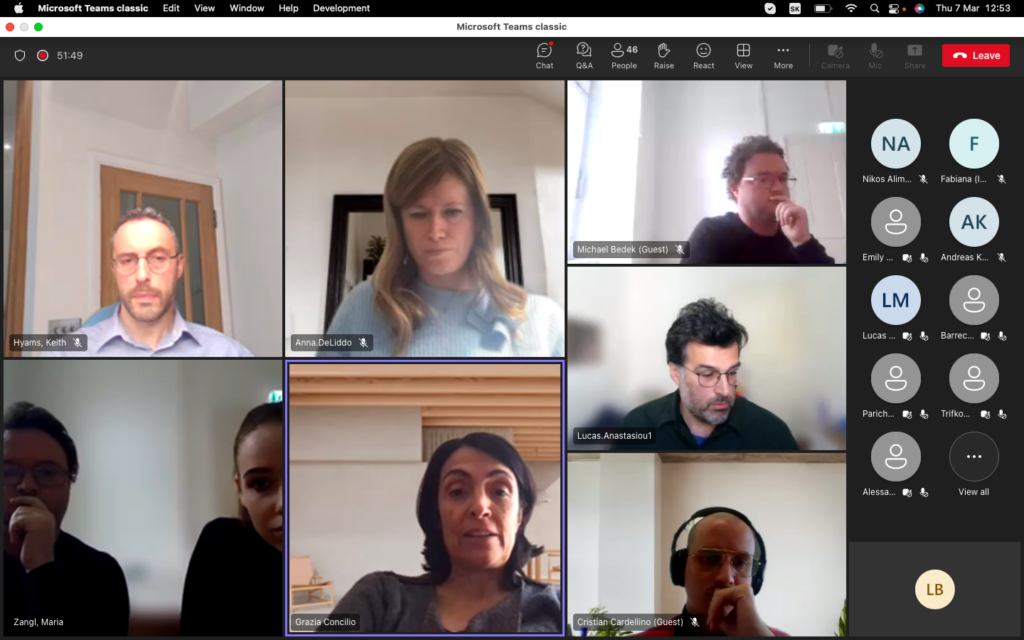
More: https://events.kmi.open.ac.uk/ai-bdd/
For those who missed the event, recordings are now available on YouTube:
Keynote speeches and panel discussion:
https://www.youtube.com/watch?v=HhLul_qADcM
Live demonstrations of modern AI tools:
https://www.youtube.com/watch?v=u7FiVavFwBQ
This workshop represents a significant step towards understanding and harnessing the potential of AI and big data in democracy while ensuring ethical considerations remain at the forefront of technological innovation.

Funded by the European Union. Views and opinions expressed are however those of the author(s) only and do not necessarily reflect those of the European Union or the Europe Research Executive Agency. Neither the European Union nor the granting authority can be held responsible for them.